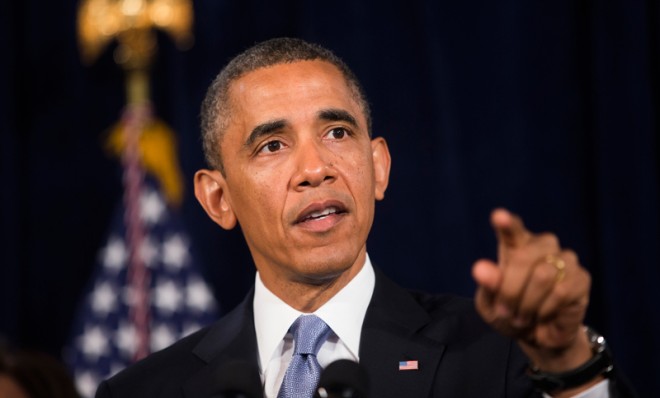Will young people jeopardize the success of ObamaCare?
Their participation is critical to balance out older, sicker patients more likely to sign up for health insurance as soon as possible

A free daily email with the biggest news stories of the day – and the best features from TheWeek.com
You are now subscribed
Your newsletter sign-up was successful

When the constitutionality of the Affordable Care Act was under debate in the Supreme Court last year, Justice Samuel Alito highlighted a problem with ObamaCare that could ultimately jeopardize the entire viability of the system of insurance exchanges. He pointed out that young, healthy adults currently spend an average of $854 a year on healthcare. However, ObamaCare would require them to purchase insurance policies expected to cost roughly $5,800. These added costs do not stem from additional "services that they are going to consume," he stated. "The mandate is forcing these people to provide a huge subsidy to the insurance companies... to subsidize services that will be received by somebody else."
These young, healthy adults are "exactly the type of person insurance plans, states and the federal government are counting on to make health reform work," the Los Angeles Times reported earlier this month. But, since young people will be required to enormously increase their healthcare outlays, the challenge for the successful implementation of the new exchanges is enticing healthy, cheap-to-insure adults to sign up for ObamaCare; their participation is critical to balance out older, sicker patients more likely to sign up for health insurance as soon as possible and receive subsidies.
Because most young people use health insurance benefits less often than other people, they are cheaper to insure. But, consequently, they are also less likely to have insurance coverage in the first place. However, they are also less likely to be high wage earners, and they will therefore be more likely to qualify for subsidies on the new exchanges. Still, in this cheap-to-insure demographic, many will earn more than the subsidy threshold and will be necessary for the system to function. Of the 7 million people the Obama administration expects to enroll for coverage in 2014, officials say 2.7 million need to be young adults.
The Week
Escape your echo chamber. Get the facts behind the news, plus analysis from multiple perspectives.

Sign up for The Week's Free Newsletters
From our morning news briefing to a weekly Good News Newsletter, get the best of The Week delivered directly to your inbox.
From our morning news briefing to a weekly Good News Newsletter, get the best of The Week delivered directly to your inbox.
When California released the pricing structure for the individual insurance plans that will be offered on its state-run exchange in May, the reported insurance premiums were lower than previously estimated, indicating that premiums under ObamaCare will be more affordable than previously expected. That news received a lot of attention because, as the most populous state, the success of California's exchanges would bode well for other exchanges. The press release issued by Covered California, the state's health insurance exchange for small businesses and individuals, said that the subsidy provision of ObamaCare would sharply reduce "costs for millions of Californians who purchase health insurance on the individual market in 2014 despite projected premium increases."
But that is just the problem, those that do not qualify for the subsidy — those Californians whose incomes are greater than 400 percent of the federal poverty level — will see much less affordable premiums. For those Americans, wrote Forbes, prices are nearly double those commonly found in the existing individual insurance market.
The young, cheap-to-insure Americans have been given a distinguishing epithet: bros. And the reliance of ObamaCare on that key demographic has been given a nickname as well: the war against bros. Many who support the healthcare reform argue that the reliance on this demographic was always part of the plan, but critics are arguing that ObamaCare supporters were not always so forthright about this cost-shifting strategy and they did not acknowledge that if "rate shock" is severe enough, the entire framework for the insurance exchanges could fall apart. The New Republic's Jonathan Cohn explains it thusly:
Health insurance needs lots of healthy people to sign up for coverage. Their premiums cover the big bills for the relatively small number of sick people. So if the exchanges don't enroll enough young, healthy people, insurers will have to raise everyone's premiums. In the worst case, this could create what actuaries call a "death spiral": Rising premiums prompt people to drop out, causing premiums to increase even more. [The New Republic]
Rate increases matter immensely to the reform's success.
A free daily email with the biggest news stories of the day – and the best features from TheWeek.com
More from Wall St. Cheat Sheet...
-
 Tourangelle-style pork with prunes recipe
Tourangelle-style pork with prunes recipeThe Week Recommends This traditional, rustic dish is a French classic
-
 The Epstein files: glimpses of a deeply disturbing world
The Epstein files: glimpses of a deeply disturbing worldIn the Spotlight Trove of released documents paint a picture of depravity and privilege in which men hold the cards, and women are powerless or peripheral
-
 Jeff Bezos: cutting the legs off The Washington Post
Jeff Bezos: cutting the legs off The Washington PostIn the Spotlight A stalwart of American journalism is a shadow of itself after swingeing cuts by its billionaire owner